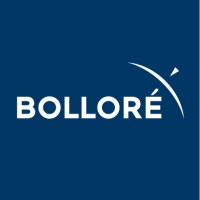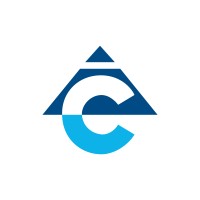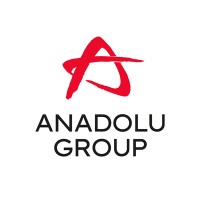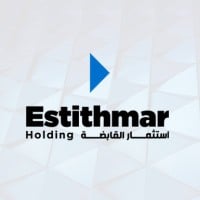Company Cyber Security Posture
NANA
NA Company Details
NA
NA
NA
NA
NA
NA
Scan still pending
NA
NA
Between 200 and 800
This score is AI-generated and less favored by cyber insurers, who prefer the TPRM score.
 NA Global Score
NA Global Score.png)

Company Scoring based on AI Models
| Model Name | Date | Description | Current Score Difference | Score |
|---|---|---|---|---|
| AVERAGE-Industry | 03-12-2025 | This score represents the average cybersecurity rating of companies already scanned within the same industry. It provides a benchmark to compare an individual company's security posture against its industry peers. | N/A | Between 200 and 800 |
Company Cyber Security News & History
| Entity | Type | Severity | Impact | Seen | Url ID | Details | View |
|---|
Company Subsidiaries

NA
Access Data Using Our API

Get company history
.png)
NA Cyber Security News
FBI alerts law firms to rising threat of Silent Ransom Group’s extortion tactics
The group, also referred to as Luna Moth, utilises tactics including callback phishing and social engineering to gain unauthorised access to ...
Another FBI Alert: The Legal Industry Continues To Be Targeted By Ransomware
What's new about this group's tactics is that they have been observed calling potential victims posing as employees from their company's IT ...
Hackers Are Calling Your Office: FBI Alerts Law Firms to Luna Moth's Stealth Phishing Campaign
The U.S. Federal Bureau of Investigation (FBI) has warned of social engineering attacks mounted by a criminal extortion actor known as Luna ...
Law Firms Warned of Silent Ransom Group Attacks
The FBI is cautioning US law firms that they have become frequent targets of the Silent Ransom Group (SRG) extortion gang. Also known as Chatty ...
FBI Warns Law Firms of Ongoing Cyber Threat by Silent Ransom Group Targeting Sensitive Legal Data
The cyber threat actor Silent Ransom Group (SRG), also known as Luna Moth, Chatty Spider, and UNC3753, is targeting law firms using information ...
FBI Warns Silent Ransom Group Targeting U.S. Law Firms
The U.S. Federal Bureau of Investigation (FBI) has issued a fresh alert warning law firms and cybersecurity professionals about ongoing cyber ...
FBI Issues on Silent Ransom Group Using Fake IT Support Calls to Target Victims
The Federal Bureau of Investigation (FBI) has issued a critical alert regarding the escalating activities of the cyber threat actor known as Silent Ransom ...
FBI Warns of Silent Ransom Group Attacking Users Via Fake IT Calls
FBI warns of Silent Ransom Group posing as IT support to target law firms via deceptive calls; tactics grow more aggressive since 2022.
FBI Warns of Silent Ransom Group Targeting Law Firms via Scam Calls
The FBI has issued a warning to US law firms about a rising cyber threat targeting the legal sector. A group known as Silent Ransom Group ...

NA Similar Companies

Bolloré
Le Groupe Bolloré, qui a fêté ses deux cents ans d’histoire en 2022, est contrôlé majoritairement par la famille Bolloré. La stabilité de son actionnariat lui permet de mener une politique d’investissement à long terme. Depuis son origine, le Groupe continue de se démarquer grâce à sa capacité d’ada

Godrej Industries Group
Godrej was founded in 1897 by Ardeshir Godrej to help build India’s economic independence. A significant portion of our profits from our innovations was donated to India’s freedom movement. During the Spanish Flu pandemic of 1918, we made the first soap from vegetable oil with no animal fat. In

Cengiz Holding
Cengiz Holding is on an upward trajectory of success, making a name for itself with huge investments in highly competitive industries and becoming known as a preferred partner for powerful companies. At the same time as making a significant contribution to the development of Turkey, Cengiz Holding

Anadolu Group
Anadolu Group operates with the vision of being “The star that links Anatolia to the world and the world to Anatolia” and maintains its activities in 8 industries (beer, soft drink, retail, agriculture, automotive, stationery, energy and health) and in 20 countries with more than 80 companies, more

Estithmar Holding
Estithmar Holding is a Qatari public listed company with a diverse portfolio of 51 companies operating in 4 strategic sectors. The company has a strong track record of growth and profitability, and is well-governed with a lean, optimized team that delivers quality in record time. With 91 nationaliti

Koç Holding
Koç Holding is Turkey’s leading investment holding company and Koç Group is Turkey's largest industrial and services group in terms of revenues, exports, number of employees, taxes paid and market capitalization on Borsa Istanbul. Being the only Turkish company to be ranked in Fortune Global 500 Lis

Frequently Asked Questions
Explore insights on cybersecurity incidents, risk posture, and Rankiteo's assessments.
NA CyberSecurity History Information
How many cyber incidents has NA faced?
Total Incidents: According to Rankiteo, NA has faced 0 incidents in the past.
What types of cybersecurity incidents have occurred at NA?
Incident Types: The types of cybersecurity incidents that have occurred include .
Additional Questions
What Do We Measure?
















Every week, Rankiteo analyzes billions of signals to give organizations a sharper, faster view of emerging risks. With deeper, more actionable intelligence at their fingertips, security teams can outpace threat actors, respond instantly to Zero-Day attacks, and dramatically shrink their risk exposure window.
These are some of the factors we use to calculate the overall score:
Identify exposed access points, detect misconfigured SSL certificates, and uncover vulnerabilities across the network infrastructure.
Gain visibility into the software components used within an organization to detect vulnerabilities, manage risk, and ensure supply chain security.
Monitor and manage all IT assets and their configurations to ensure accurate, real-time visibility across the company's technology environment.
Leverage real-time insights on active threats, malware campaigns, and emerging vulnerabilities to proactively defend against evolving cyberattacks.




